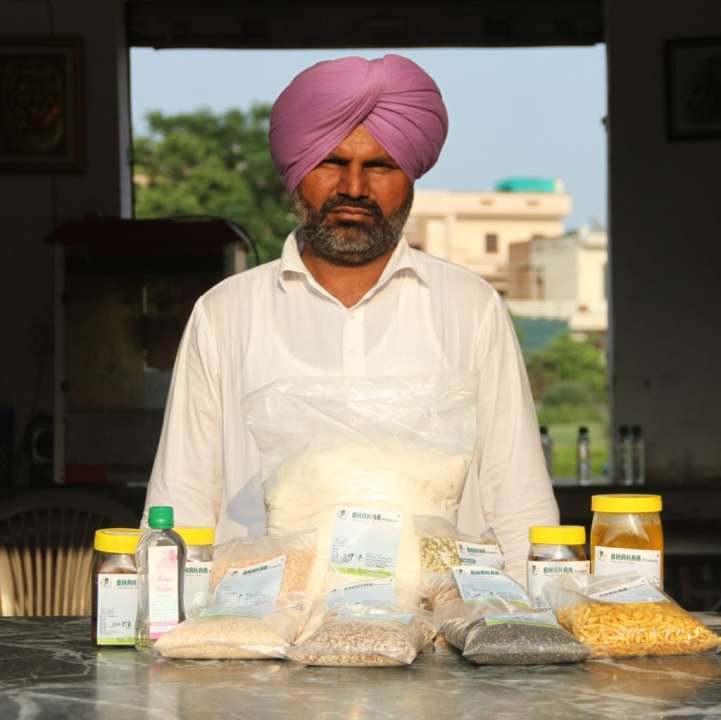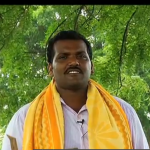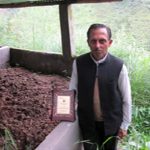
Rajinder Pal Singh
Story of a Man Who Learned From His Mistakes and Turned Towards the Wisest Pursuit: Organic Farming
Mother Nature is one of our greatest teachers and she never stopped from the earliest times in teaching us what we need to know. Today we are living on Earth in a way as if we had another one to go to. We are not aware that how we are disturbing the nature’s balance and how it can affect us in reverse. Nowadays, we are seeing many cases of diseases, abnormalities, and deficiencies, in humans and animals, but still, most of the people are not able to identify the slips, they are just sitting with the blindfolds as if nothing is going on. But there are still few people, who have learned from their mistakes and are trying to bring a change in the society.
It is said that mistakes have the power to turn you into something better than you were before. And one such person who turned his path towards something better is Rajinder Pal Singh and today he is a successful personality in the field of organic farming. His products are not only praised and have high demand in Punjab, but also in America, Canada and even the royal family of London is also aware of it.
Well, there is always a story behind a successful journey. Rajinder Pal Singh a resident of Kalalwala Village of District- Bathinda, was once a farmer who used to do conventional farming, but after facing the adverse effects of chemicals and pesticides himself, he realized that, with which intensity he is affecting his environment and his health by using the chemicals. He used to spray pesticides on his crops, but one day, that spray affected his nervous system and same was the case with one of his relatives. From that day he decided to quit the use of chemicals and adopt natural ways for farming.
In the beginning, he and his uncle started organic farming on 4 acres of land and slowly expanded the area. In 2001, he bought rose saplings from Uttar Pradesh and since then he is doing rose farming also along with cultivating other crops. He has taken no training for organic farming. His uncle helped him in organic farming by gathering all information from the books. Currently, he is living in a joint family, with his wife, children, uncles, aunts, and cousins, and he gives all the credit of his success to his family for their endless support.
He was the first farmer in Malwa region of Bathinda who chose organic farming over conventional farming. When he started organic farming, at that time, he faced many difficulties and many people discouraged him also by saying that he is just wasting money, but today his products are sold in advance booking. And he is also the first farmer of Punjab who gifted Rose Oil made by him on his farm to Prince Charles and his wife in 2010 in an event in Fatehgarh Sahib.
The title of “King of Flowers” is also given to him for the work he is doing. He has the best variety of rose called Damascus and you can smell the fragrance of roses by standing at a far distance from his rose fields which is spread over 6 acres of land. He has also set up an oil extraction project on his own farm where he makes rose oil by using his farm roses. Other than rose farming he is also growing Green Grams, Lentil, Maize, Soy Bean, Peanut, Bengal Gram, Wheat, Basmati, Chick Pea, Guar and other seasonal vegetables. In 12 acres he grows basmati and in the rest of the land, he grows other above-mentioned crops.
The roses which Rajinder Pal Singh is farming blooms once in a year in December and its harvesting is completed till the month of March and April. From one acre of land he is growing 12 to 18 quintals of roses and today his annual profit from one acre of rose farming land is 1.25 Lakhs. His products demand come from America, Canada, and other countries. Even the rose oil made by him is purchased at a good price in advance by the exporters, just because he makes it from pure organic roses. In the off-season, he grows other varieties of roses and make Gulkand from it and sell it in the nearby grocery stores. Other than rose oil, rose water, and gulkand, he also sells organic lentils, wheat, maize, rice and other crops that he grows. All the products made by him are sold under his brand name Bhakar Organic Farm.
Today, Rajinder Pal Singh is very much satisfied with organic farming. Yes, he is getting low yield but the price of his products is just two times than the price of other crops grown using conventional farming. He only uses cow dung manure and river water in his fields and does not buy any type of manure or compost from the market. By doing organic farming he is also able to maintain the nutrient and fertility level of the soil. In the beginning, he faced a little problem in marketing his products but as soon the people recognized the quality level of his products, he started gaining momentum in his work. And he is also facing very fewer diseases in his crops by doing organic farming.
Now coming to his awards and achievements- He is appreciated by the Central Government under the ATMA SCHEME and is presented as a role model to inspire other farmers in the country. He is also a member of Bhumi Vardaan Foundation which is led by the Royal Prince of Wales, Britain, and all his products are organically certified by this foundation. He has also received Appreciation letter from Punjab Agriculture Department, Patiala and even Ex-Agriculture Minister of Punjab – Mr. Tota Singh also awarded him as a Progressive Farmer.
Future Plans:
His future plan is to continue his work in the field of organic farming and make aware more and more farmers about organic farming and inspire them to do it.
Message Given by Rajinder Pal Singh
“Today our earth need us and we as a farmer are the most responsible person in saving the earth from pollution. Yes, by doing organic farming there is less yield, but in the coming times, there will be high demand for organic products, not just because it is healthy, but also because it will become the need of the hour. Moreover, organic farming is sustainable and requires less finance, it only requires labour, and if a farmer is interested in switching to organic farming then he can do it very easily.”
“









